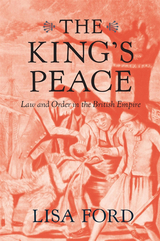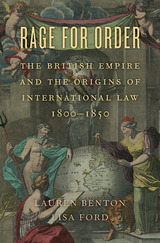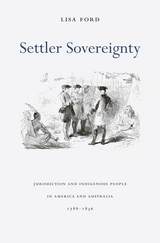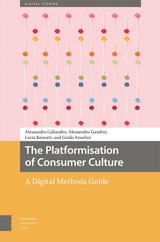
How the imposition of Crown rule across the British Empire during the Age of Revolution corroded the rights of British subjects and laid the foundations of the modern police state.
During the eighteenth and nineteenth centuries, the British Empire responded to numerous crises in its colonies, from North America to Jamaica, Bengal to New South Wales. This was the Age of Revolution, and the Crown, through colonial governors, tested an array of coercive peacekeeping methods in a desperate effort to maintain control. In the process these leaders transformed what it meant to be a British subject.
In the decades after the American Revolution, colonial legal regimes were transformed as the king’s representatives ruled new colonies with an increasingly heavy hand. These new autocratic regimes blurred the lines between the rule of law and the rule of the sword. Safeguards of liberty and justice, developed in the wake of the Glorious Revolution, were eroded while exacting obedience and imposing order became the focus of colonial governance. In the process, many constitutional principles of empire were subordinated to a single, overarching rule: where necessary, colonial law could diverge from metropolitan law. Within decades of the American Revolution, Lisa Ford shows, the rights claimed by American rebels became unthinkable in the British Empire. Some colonial subjects fought back but, in the empire, the real winner of the American Revolution was the king.
In tracing the dramatic growth of colonial executive power and the increasing deployment of arbitrary policing and military violence to maintain order, The King’s Peace provides important lessons on the relationship between peacekeeping, sovereignty, and political subjectivity—lessons that illuminate contemporary debates over the imbalance between liberty and security.

International law burst on the scene as a new field in the late nineteenth century. Where did it come from? Rage for Order finds the origins of international law in empires—especially in the British Empire’s sprawling efforts to refashion the imperial constitution and use it to order the world in the early part of that century.
“Rage for Order is a book of exceptional range and insight. Its successes are numerous. At a time when questions of law and legalism are attracting more and more attention from historians of 19th-century Britain and its empire, but still tend to be considered within very specific contexts, its sweep and ambition are particularly welcome…Rage for Order is a book that deserves to have major implications both for international legal history, and for the history of modern imperialism.”
—Alex Middleton, Reviews in History
“Rage for Order offers a fresh account of nineteenth-century global order that takes us beyond worn liberal and post-colonial narratives into a new and more adventurous terrain.”
—Jens Bartelson, Australian Historical Studies

In a brilliant comparative study of law and imperialism, Lisa Ford argues that modern settler sovereignty emerged when settlers in North America and Australia defined indigenous theft and violence as crime.
This occurred, not at the moment of settlement or federation, but in the second quarter of the nineteenth century when notions of statehood, sovereignty, empire, and civilization were in rapid, global flux. Ford traces the emergence of modern settler sovereignty in everyday contests between settlers and indigenous people in early national Georgia and the colony of New South Wales. In both places before 1820, most settlers and indigenous people understood their conflicts as war, resolved disputes with diplomacy, and relied on shared notions like reciprocity and retaliation to address frontier theft and violence. This legal pluralism, however, was under stress as new, global statecraft linked sovereignty to the exercise of perfect territorial jurisdiction. In Georgia, New South Wales, and elsewhere, settler sovereignty emerged when, at the same time in history, settlers rejected legal pluralism and moved to control or remove indigenous peoples.
READERS
Browse our collection.
PUBLISHERS
See BiblioVault's publisher services.
STUDENT SERVICES
Files for college accessibility offices.
UChicago Accessibility Resources
home | accessibility | search | about | contact us
BiblioVault ® 2001 - 2024
The University of Chicago Press









